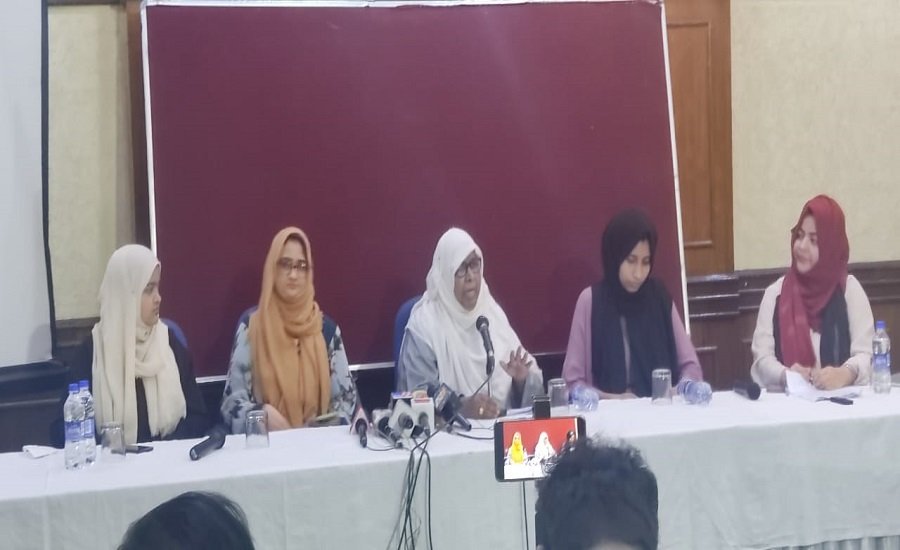
A group of woman activists belonging to Muslim community held a press conference to discuss the challenges the verdict posed to them, and the way forward.
On Tuesday, the High Court passed a verdict upholding the state government’s order banning religious clothes in classes.
A group of woman activists belonging to Muslim community held a press conference in New Delhi on Wednesday to discuss the challenges the verdict posed to them, and the way forward. Nabiya Khan, a Delhi-based activist and poet, said after the verdict, Muslim women are bound to face increased discrimination in public places on flimsy grounds.
She said that the discrimination against Muslim women who wear hijab is not new. But the court verdict has “legalised” their harassment .
Huma Masih, an activist and a student, said the impact of the verdict can also be felt by other marginalised and minority religious, cultural and ethnic groups in future. She lamented that the verdict rejects the agency of the Muslim women.
Masih expressed her disappointment with women’s rights groups who, she said, were not sincere on the issue of hijab. Pointing out their double standards, she said National Women’s Commission chairman Rekha Sharma welcomed the verdict, but when Muslim women were publicly forced to remove their hijab, she remained quiet.
Another student, Simra Ansari, said the discrimination faced by the Muslim women on account of their identity and dress is systematic. “We will maintain our identity through hijab while seeking education,” she said, adding “We are not going to choose one, but go for both.”
Hiba, a student from Jamia Millia Islamia, echoed similar sentiments when she expressed concern over the verdict which, she apprehended will enable exclusion of Muslim women from educational institutions.
The activists said that the hijab ban will prove detrimental to Muslim women’s struggle to gain access to education and employment.
Social activist Khalida Parveen said the Muslim women are though disappointed and angry with the court verdict, that they have not lost hope and will continue their struggle for justice. “We will go to the Supreme Court,” she asserted.
Parveen slammed the role of a section of the mainstream media and social media for undermining the hijab and thereby demonising Muslim women.
The activists, in view of the implications of the ban order and the court verdict, laid down a series of demands on behalf of the aggrieved Muslim students. They are as follows:
● The state government must amend the Education Act to ensure that uniforms mandated by the relevant authorities are inclusive and respectful of cultural and religious diversity. CDCs of different colleges must also ensure that dress code prescribed by them is similarly inclusive and non-discriminatory.
● Relief for students whose academic years are impacted by the court’s ruling; students who missed their exams must be allowed to give them now, and in the immediate instance girls should be allowed to write their exams wearing hijab. The high court order nowhere prohibits the wearing of hijab while writing exams; it only allows the prescription of uniform by CDCs that bar hijab. If any new dress code is being introduced by colleges for writing exams, it should not be implemented in the current year.
● In unavoidable circumstances, if a student is facing a year’s loss due to this issue, they must not be made to pay the fees again for the next year.
● Ensure that further intimidation and harassment of Muslim students and their families does not take place in the name of implementing the order.
● Immediate registration of FIR against anyone intimidating or harassing Muslim women students or their families.
● Withdrawal of cases mischievously filed against the students for participating in protests or even turning up to colleges wearing a hijab.
● Educational institutions must make a provision for institutional mental healthcare support to all affected Muslim women students.
● All media houses are urged to follow journalistic ethics in their reportage, and take due care to maintain the confidentiality of Muslim women students who are rendered vulnerable to different forms of violence as a result of irresponsible media coverage, and especially of minor students, many of whom have been hounded and harassed by media persons.

